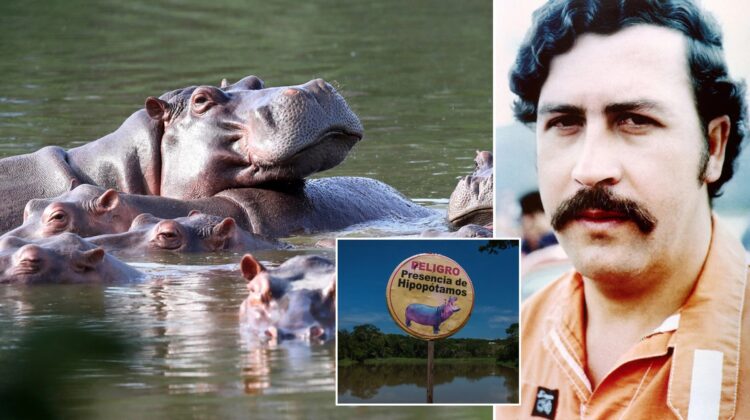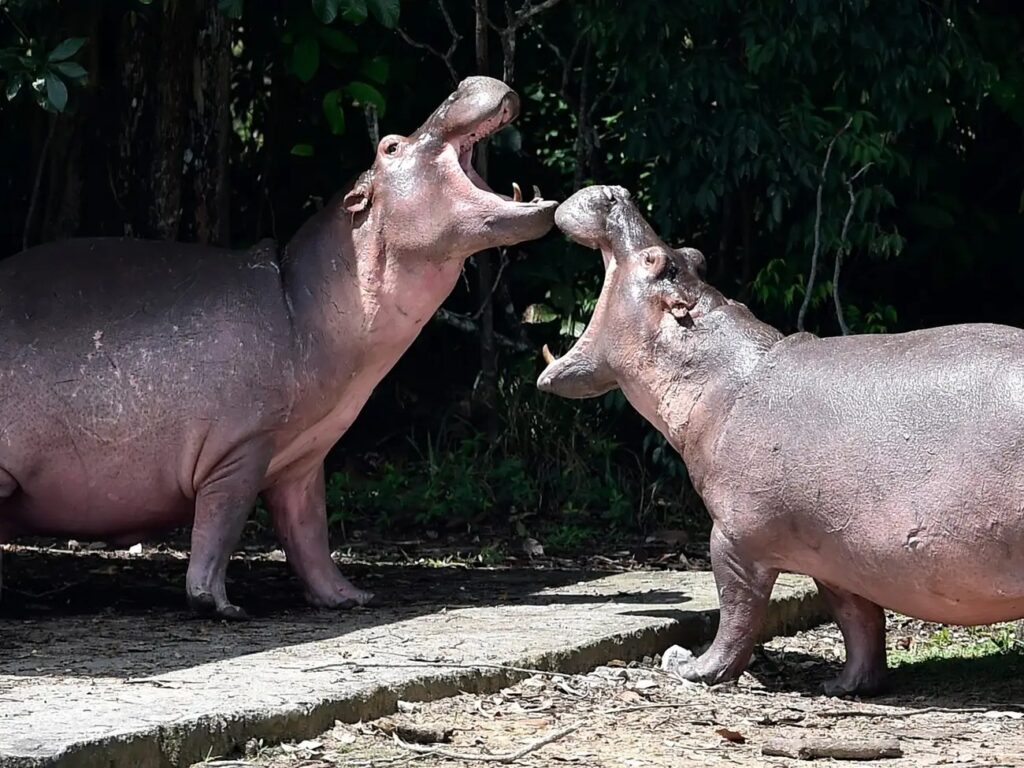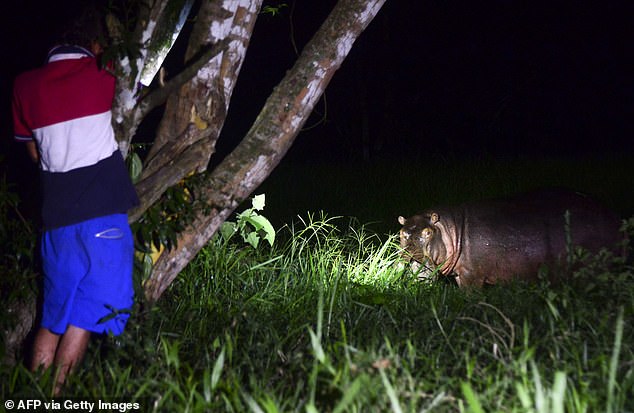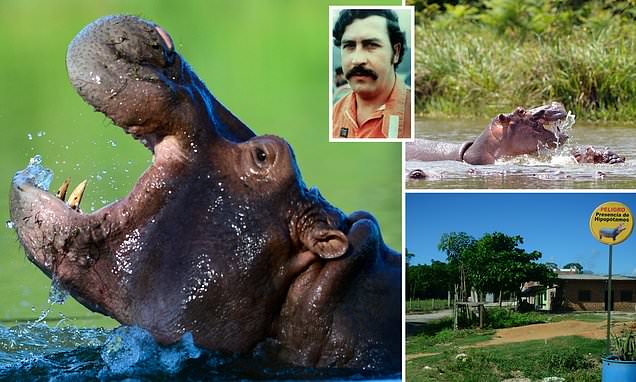
The world’s most notorious drug lord, Pablo Escobar, may have been killed 30 years ago, but his legacy still lives on in Colombia. Escobar’s private zoo, located at his Hacienda Napoles ranch, included a group of hippos that were imported from Africa. After Escobar’s death, the hippos were left to roam free and have since become a local attraction for tourists visiting the area.
However, this seemingly harmless curiosity has turned into a major ecological problem. According to a recent study in the journal Nature, the hippo population has grown to between 130 and 160 individuals, and they have spread far beyond the boundaries of Escobar’s former ranch. The study warns that if the hippos continue to breed at this rate, their numbers could balloon to 1,500 within two decades.

RAUL ARBOLEDA/AFP via Getty Images
The Colombian government is now taking action to address the issue. They plan to fly 70 of the hippos to sanctuaries in India and 10 to Mexico, according to the governor of Antioquia province, where Hacienda Napoles ranch is located. The move is controversial and has sparked debate among animal rights activists, environmentalists, and locals.
While some argue that the hippos should be allowed to remain in their natural habitat, others point out that the hippos are not native to Colombia and have disrupted the local ecosystem. Hippos are considered an invasive species in Colombia, and their waste can contaminate water sources and harm other wildlife.

Furthermore, the hippos have become a potential threat to human safety. There have been reports of aggressive behavior towards humans and livestock. In one instance, a man was attacked and killed by a hippo near the town of Puerto Triunfo.
Deporting the hippos to other countries is not without risks and logistical challenges. The animals will have to be sedated and flown long distances, which can be stressful for them. However, many experts agree that it is a necessary step to control the growing population and protect the environment.

In conclusion, the ‘cocaine hippos’ of Pablo Escobar are multiplying in Colombia, and the government is taking action. While the decision to deport them is not without controversy, it is seen as a necessary step to control the growing population and prevent ecological damage. As we continue to learn about the impact of invasive species on the environment, it is important to consider the consequences of our actions and make responsible decisions for the benefit of all.

Leave a Reply